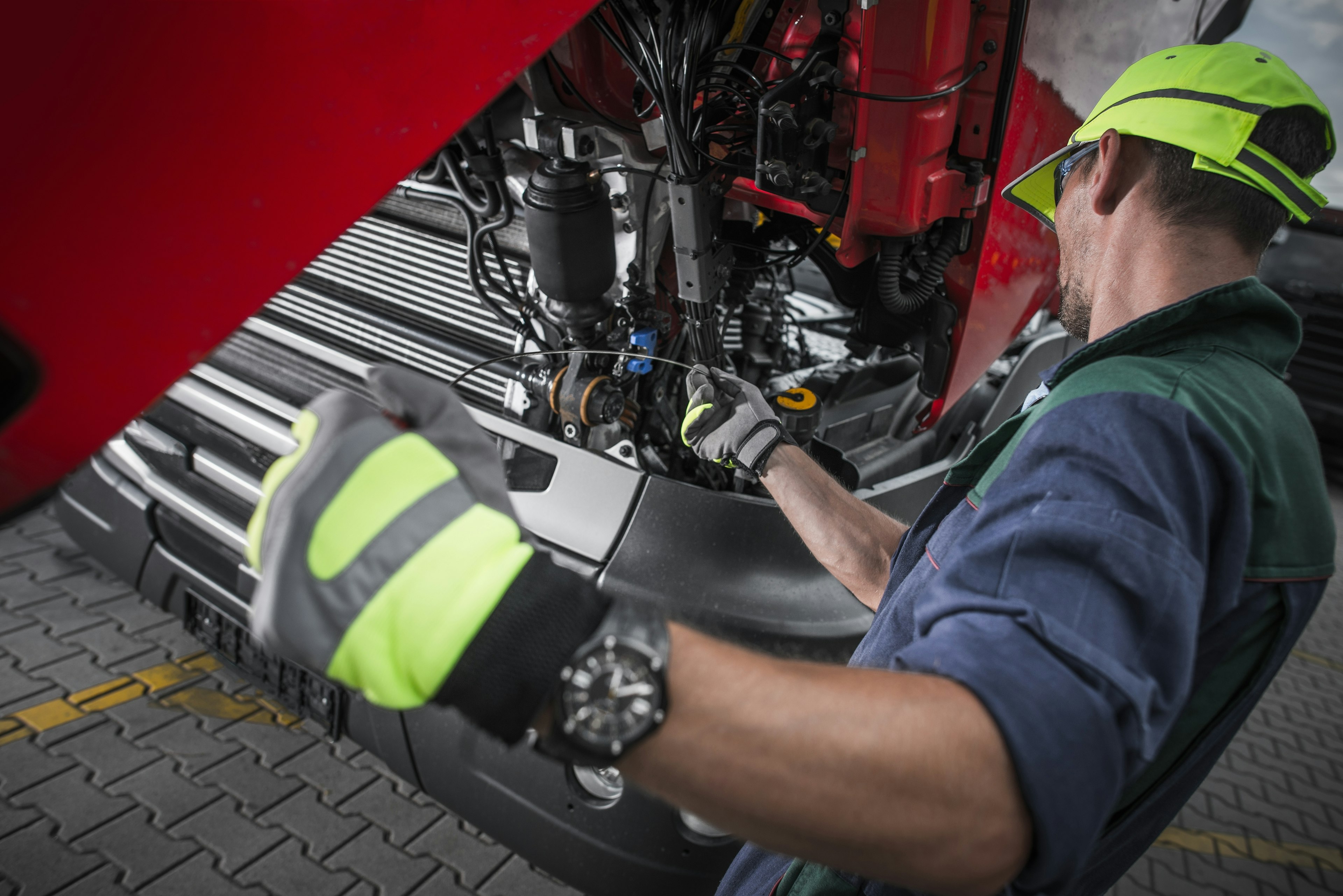Proactive maintenance is essential for any fleet, especially those operating in demanding industries or on rough road conditions. However, drivers may not have time to handle upkeep—after all, every minute a vehicle is in the shop is a minute it’s not working, putting drivers further behind schedule. The alternative isn’t much better: by ignoring check engine lights, safety recalls, or other warning signs, a simple fix can quickly become a costly replacement, causing even more significant productivity losses. This leaves fleet managers asking: Is there any way to handle maintenance without disrupting operations, leading to better productivity and healthier vehicles?
Actually, there is: mobile maintenance. This is when a vendor completes preventive maintenance or minor repairs via a mobile repair truck or van. Instead of drivers having to drop vehicles off for work at a service center, technicians come to your fleet to perform routine service and upkeep during off-hours.
Could mobile maintenance be a good alternative for your fleet team and drivers? Let’s explore its advantages and critical considerations.
Fast and flexible service
The biggest perk of mobile maintenance is its flexibility. Technicians can service vehicles during off-hours to avoid operational disruptions, ensuring vehicles are road-ready without a stop at the maintenance shop.
Vendors can perform various mobile services, including:
- Preventive maintenance like oil changes, brake inspections and replacements, fluid top-ups and flushes, and tire rotations.
- Diagnosing engine and transmission problems.
- Emergency services, both on-site and roadside.
- Specialized services such as custom upfit repairs or PDR (paintless dent repair).
No matter what your team uses mobile maintenance for, the results are the same: reduced downtime, improved productivity, and more vehicles serviced at once.
Savings and efficiency
Since mechanics come directly to you to perform the work, mobile maintenance typically costs more upfront than going to a shop. However, depending on the savings from reduced vehicle downtime and increased efficiency, the costs may actually add to your bottom line.
One common way you’ll save is by extending the vehicle's lifespan. With mobile maintenance, preventive care no longer falls onto the shoulders of your drivers. Having vehicles in good shape also means you don’t have to worry about buying costly replacements from a strained supply chain due to preventable breakdowns.
Additionally, the larger the fleet, the better mobile maintenance may be for your company. It keeps your fleet on a consistent maintenance schedule, and many providers offer the ability to set up regular on-site service routines, which helps the fleet run like a well-oiled machine. Many providers also use digital tools to track service records and diagnostic reports—you can integrate these into telematics platforms to monitor vehicle health and determine when the mobile mechanics should visit next if you’re not on a regular schedule with them. Some providers even offer remote diagnostics to determine vehicle issues without physically being on-site.
Is mobile maintenance right for my fleet?
Mobile maintenance isn’t a one-size-fits-all solution. To determine if it’s a good fit for your fleet, consider the following:
- What are my current maintenance practices? Do you already have a maintenance plan with a fleet management company (FMC)? Do you use telematics to track vehicle health? Are your drivers diligent at performing necessary maintenance, or do they need constant reminders? Assessing your current setup will help determine if mobile maintenance adds value and helps find the right provider for you.
- What are my fleet characteristics? Fleet size, industry, specific fleet needs, vehicle types, usage patterns, and even location can affect whether it makes sense to engage mobile maintenance. Providers often offer tailored maintenance solutions, especially for specialized industries with refrigerated trucks, construction vehicles, or emergency response fleets, but not every fleet requires it.
- How much more efficient will my drivers become? How much time will your drivers save by avoiding runs to service centers? How many additional deliveries or services can be performed if breakdowns and delays are reduced? Understanding the productivity boost can clarify the benefits.
- What costs should I keep in mind? Compare the costs of mobile maintenance services to the expenses associated with downtime. Remember, downtime is broken down into hard, tangible costs, such as vehicle rental and lost revenue, and soft, variable costs, like lower productivity and delivery delays.
Mobile maintenance can be a game-changer for fleets looking to optimize operations and reduce downtime. Interested in exploring this solution for your team? Connect with Mike Albert Fleet Solutions — we’ll help you assess your needs and make the best decision for your fleet.



